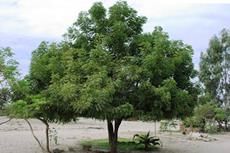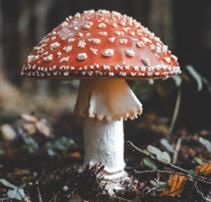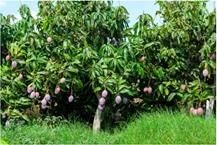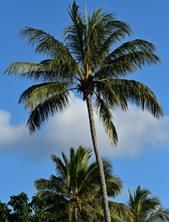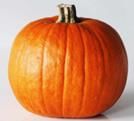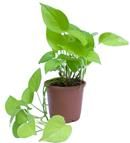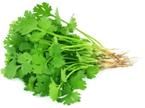All Exams >
Class 2 >
EVS for Class 2 >
All Questions
All questions of Plants for Class 2 Exam
Study the flow chart and choose the correct statement.
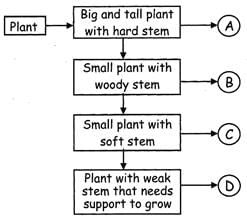
- a)A is a Rose plant
- b)B is a Hibiscus plant
- c)C is a Banyan tree
- d)D is a Shrub
Correct answer is option 'C'. Can you explain this answer?
Study the flow chart and choose the correct statement.


a)
A is a Rose plant
b)
B is a Hibiscus plant
c)
C is a Banyan tree
d)
D is a Shrub

|
Keystone Instructors answered |
- 'B' is a Hibiscus plant which is a small plant with woody stem.
Which of the following part is known as the food storehouse of the plant?- a)Stem
- b)Leaves
- c)Root
- d)Shoot
Correct answer is option 'A'. Can you explain this answer?
Which of the following part is known as the food storehouse of the plant?
a)
Stem
b)
Leaves
c)
Root
d)
Shoot
|
|
Pranav Singh answered |
Stem is the food storehouse of the plant.
What are the similarities between the plants bearing the flowers as shows?

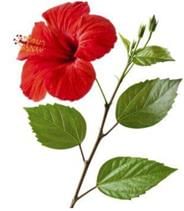
- a)They have weak stems
- b)They have woody stem
- c)They have very big leaves
- d)They grow along the ground
Correct answer is option 'B'. Can you explain this answer?
What are the similarities between the plants bearing the flowers as shows?




a)
They have weak stems
b)
They have woody stem
c)
They have very big leaves
d)
They grow along the ground
|
|
Pranav Singh answered |
- Rose and hibiscus plants have woody stem.
Direction: Select the odd one out- a)root
- b)shoot
- c)trees
- d)leaves
Correct answer is option 'C'. Can you explain this answer?
Direction: Select the odd one out
a)
root
b)
shoot
c)
trees
d)
leaves
|
|
Pranav Singh answered |
Root, shoot and leaves are the part of plant, tree is a type of plants.
Which is these is obtained from plants?- a)Paper
- b)Animals
- c)Medicine
- d)Both (a) and (b)
Correct answer is option 'D'. Can you explain this answer?
Which is these is obtained from plants?
a)
Paper
b)
Animals
c)
Medicine
d)
Both (a) and (b)
|
|
Pranav Singh answered |
Both paper and medicines are obtained from plants.
Fruits develop from __________.- a)leaves
- b)flowers
- c)seeds
- d)stem
Correct answer is option 'B'. Can you explain this answer?
Fruits develop from __________.
a)
leaves
b)
flowers
c)
seeds
d)
stem
|
|
Pranav Singh answered |
Fruits develop from flower.
Which of these is an important function of the roots of a plant?- a)To absorb oxygen from the atmosphere
- b)To absorb carbon dioxide from the atmosphere
- c)To absorb water and minerals from the soil
- d)All of these
Correct answer is option 'C'. Can you explain this answer?
Which of these is an important function of the roots of a plant?
a)
To absorb oxygen from the atmosphere
b)
To absorb carbon dioxide from the atmosphere
c)
To absorb water and minerals from the soil
d)
All of these
|
|
Pranav Singh answered |
- Roots absorb water and minerals from the soil.
Direction: Select the odd one out- a)cactus
- b)rose
- c)cotton
- d)hibiscus
Correct answer is option 'A'. Can you explain this answer?
Direction: Select the odd one out
a)
cactus
b)
rose
c)
cotton
d)
hibiscus
|
|
Pranav Singh answered |
Rose, cotton and hibiscus are shrubs, cactus is a desert plant.
Oil is not abstained from which of the following plant?- a)Mango plant
- b)Sunflower plant
- c)Mustard plant
- d)Coconut plant
Correct answer is option 'A'. Can you explain this answer?
Oil is not abstained from which of the following plant?
a)
Mango plant
b)
Sunflower plant
c)
Mustard plant
d)
Coconut plant
|
|
Prateek Saini answered |
Answer:
Introduction:
In this question, we are asked to identify the plant from which oil is not abstained. We are given four options: Mango plant, Sunflower plant, Mustard plant, and Coconut plant. We need to determine which plant does not produce oil.
Explanation:
Let's analyze each option one by one:
a) Mango plant:
Mango plants do not produce oil. The fruit of the mango plant contains a single large seed, called the mango kernel or mango stone. However, this kernel does not yield oil. Mangoes are primarily consumed as a fruit and are known for their delicious taste.
b) Sunflower plant:
Sunflower plants are one of the major sources of edible oil. The seeds of the sunflower plant are highly prized for their oil content. Sunflower oil is commonly used for cooking purposes and is known for its light flavor and high smoking point.
c) Mustard plant:
Mustard plants produce oil that is commonly known as mustard oil. The seeds of the mustard plant are crushed or pressed to extract the oil. Mustard oil is widely used in cooking, particularly in Indian and Asian cuisines. It has a strong flavor and is often used for its distinctive taste and aroma.
d) Coconut plant:
Coconut plants are another significant source of oil. The coconut itself is a fruit, and the oil is extracted from the copra, which is the dried kernel of the coconut. Coconut oil is widely used for cooking, as well as for various other purposes such as skin and hair care.
Conclusion:
After analyzing all the options, we can conclude that the plant from which oil is not abstained is the Mango plant. While sunflower, mustard, and coconut plants all produce oil, the mango plant does not yield oil.
Introduction:
In this question, we are asked to identify the plant from which oil is not abstained. We are given four options: Mango plant, Sunflower plant, Mustard plant, and Coconut plant. We need to determine which plant does not produce oil.
Explanation:
Let's analyze each option one by one:
a) Mango plant:
Mango plants do not produce oil. The fruit of the mango plant contains a single large seed, called the mango kernel or mango stone. However, this kernel does not yield oil. Mangoes are primarily consumed as a fruit and are known for their delicious taste.
b) Sunflower plant:
Sunflower plants are one of the major sources of edible oil. The seeds of the sunflower plant are highly prized for their oil content. Sunflower oil is commonly used for cooking purposes and is known for its light flavor and high smoking point.
c) Mustard plant:
Mustard plants produce oil that is commonly known as mustard oil. The seeds of the mustard plant are crushed or pressed to extract the oil. Mustard oil is widely used in cooking, particularly in Indian and Asian cuisines. It has a strong flavor and is often used for its distinctive taste and aroma.
d) Coconut plant:
Coconut plants are another significant source of oil. The coconut itself is a fruit, and the oil is extracted from the copra, which is the dried kernel of the coconut. Coconut oil is widely used for cooking, as well as for various other purposes such as skin and hair care.
Conclusion:
After analyzing all the options, we can conclude that the plant from which oil is not abstained is the Mango plant. While sunflower, mustard, and coconut plants all produce oil, the mango plant does not yield oil.
The leaves of ___________ are used as food.- a)anion
- b)cabbage
- c)eggs
- d)ginger
Correct answer is option 'B'. Can you explain this answer?
The leaves of ___________ are used as food.
a)
anion
b)
cabbage
c)
eggs
d)
ginger
|
|
Pranav Singh answered |
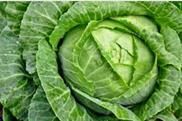
- The leaves of cabbage are used as food.
Direction: Select the odd one out- a)money plant
- b)grapevine
- c)bean
- d)pumpkin
Correct answer is option 'D'. Can you explain this answer?
Direction: Select the odd one out
a)
money plant
b)
grapevine
c)
bean
d)
pumpkin

|
Kds Coaching answered |
Money plant, grapevine, and bean are all climbers—plants that need support to grow upward. Pumpkin is a creeper, which means it spreads along the ground and does not climb upward. Therefore, the odd one out is pumpkin.
Direction: Select the odd one out- a)table
- b)chair
- c)door
- d)medicine
Correct answer is option 'D'. Can you explain this answer?
Direction: Select the odd one out
a)
table
b)
chair
c)
door
d)
medicine
|
|
Pranav Singh answered |
Table, chair and doors are obtained from wood.
Small plants with weak stems are called herbs. Which of the these is a herb?- a)Tulsi
- b)Apple
- c)Gulmohar
- d)Grapevine
Correct answer is option 'A'. Can you explain this answer?
Small plants with weak stems are called herbs. Which of the these is a herb?
a)
Tulsi
b)
Apple
c)
Gulmohar
d)
Grapevine

|
Kds Coaching answered |
- Tulsi, also known as holy basil, is a small plant with a soft stem, making it a herb.
- Herbs are typically characterized by their aromatic properties and are often used in cooking or for medicinal purposes.
- In contrast, apple, gulmohar, and grapevine are larger plants or trees, classified as shrubs or woody plants.
Study the given figure. Which of the following best represents X and Y?

- a)X---- Mustard, Y ---- Sunflower
- b)X---- Coconut, Y ----- Sunflower
- c)X---- Sunflower, Y ----- Groundnut
- d)X---- Groundunt, Y ----- Mustard
Correct answer is option 'B'. Can you explain this answer?
Study the given figure. Which of the following best represents X and Y?


a)
X---- Mustard, Y ---- Sunflower
b)
X---- Coconut, Y ----- Sunflower
c)
X---- Sunflower, Y ----- Groundnut
d)
X---- Groundunt, Y ----- Mustard

|
Tutorpedia Coaching answered |
X-Coconut, Y-Sunflower.
Chapter doubts & questions for Plants - EVS for Class 2 2025 is part of Class 2 exam preparation. The chapters have been prepared according to the Class 2 exam syllabus. The Chapter doubts & questions, notes, tests & MCQs are made for Class 2 2025 Exam. Find important definitions, questions, notes, meanings, examples, exercises, MCQs and online tests here.
Chapter doubts & questions of Plants - EVS for Class 2 in English & Hindi are available as part of Class 2 exam.
Download more important topics, notes, lectures and mock test series for Class 2 Exam by signing up for free.
EVS for Class 2
30 videos|243 docs|48 tests
|

Contact Support
Our team is online on weekdays between 10 AM - 7 PM
Typical reply within 3 hours
|
Free Exam Preparation
at your Fingertips!
Access Free Study Material - Test Series, Structured Courses, Free Videos & Study Notes and Prepare for Your Exam With Ease

 Join the 10M+ students on EduRev
Join the 10M+ students on EduRev
|

|
Create your account for free
OR
Forgot Password
OR
Signup to see your scores
go up
within 7 days!
within 7 days!
Takes less than 10 seconds to signup

